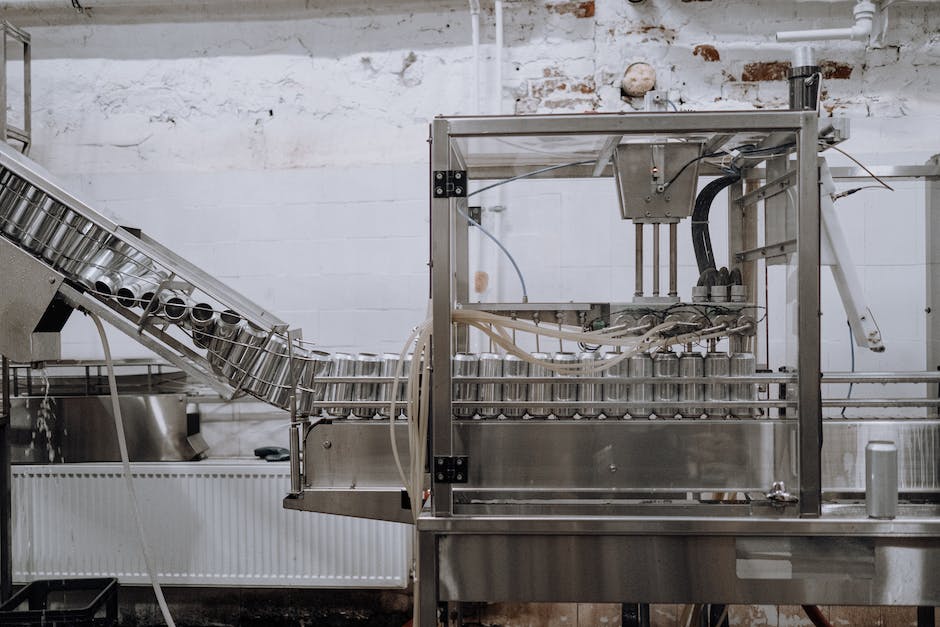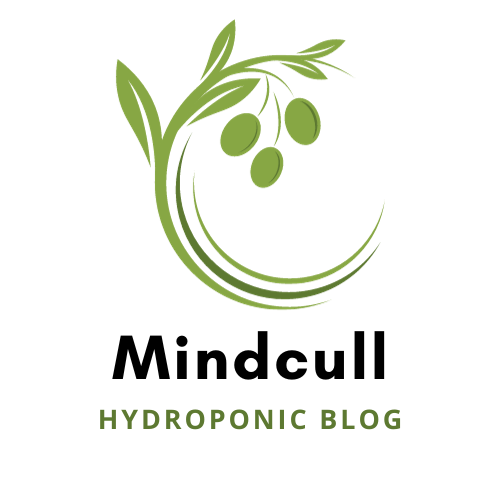Can You Make Your Own Hydroponic Solution
Hydroponic gardening has gained popularity in recent years as a sustainable and efficient method of growing plants. By eliminating soil and instead using a nutrient-rich water solution, this technique allows for year-round cultivation and faster plant growth. While there are ready-made hydroponic solutions available in the market, many individuals wonder if it is possible to make their own hydroponic solution. In this article, we will explore the basics of hydroponics and delve into the ingredients and steps required to create your own hydroponic solution. Whether you are a seasoned gardener or a curious beginner, understanding the process of making your own hydroponic solution will empower you to take control of your hydroponic setup and tailor it to the specific needs of your plants.
What is a Hydroponic Solution?

A hydroponic solution is a specialized nutrient mixture used in hydroponic systems to provide plants with essential nutrients for optimal growth. Unlike traditional soil-based gardening, hydroponics relies on a water-based solution that delivers nutrients directly to the plant roots.
The hydroponic solution typically consists of a carefully balanced mixture of mineral elements, including nitrogen, potassium, phosphorus, calcium, magnesium, and trace elements such as iron, zinc, copper, and manganese. These nutrients are essential for plant growth and development, aiding in the production of chlorophyll, the formation of proteins, and overall plant metabolism.
The composition of a hydroponic solution is crucial, as it directly affects the health and productivity of the plants. Each plant species may have specific nutrient requirements, and these needs can further vary during different growth stages. It is important to consider the plant’s nutritional requirements and customize the hydroponic solution accordingly.
One benefit of hydroponics is the ability to tailor the nutrient solution to meet the specific needs of your plants. By understanding the ideal nutrient ratios and concentrations for your chosen crops, you can create a homemade hydroponic solution that provides optimal nutrition for vigorous growth and high-quality yields.
While pre-mixed hydroponic solutions are readily available in the market, some ambitious hydroponic enthusiasts prefer to create their own nutrient solutions. This allows for more control over the ingredients used and the ability to adjust nutrient levels as needed. However, it is important to note that formulating a balanced homemade hydroponic solution requires knowledge of plant nutrition and careful measurement of individual nutrient components.
When creating your own hydroponic solution, it is advisable to refer to reputable sources, consult experts, or seek guidance from experienced hydroponic gardeners. They can provide insights into the nutrient requirements of your specific plants and help you determine the appropriate ratios and concentrations for your homemade solution.
In conclusion, a hydroponic solution is a crucial element in successful hydroponic gardening. Understanding the composition and nutritional needs of your plants will enable you to create a customized solution that promotes healthy growth and abundant yields. Whether you choose a pre-mixed solution or decide to formulate your own, maintaining a well-balanced hydroponic solution is vital for achieving professional-level results in your hydroponic garden.
Benefits of Using a Hydroponic Solution

A hydroponic solution is a nutrient-rich mixture that provides essential elements for plant growth in a soil-less environment. Compared to traditional soil-based gardening, using a hydroponic solution offers numerous benefits for both commercial growers and individuals looking to cultivate plants at home.
1. Increased Crop Yield: One of the primary advantages of using a hydroponic solution is the potential for significantly higher crop yields. By directly supplying plants with a precisely balanced mix of nutrients, plants can grow faster and more efficiently, resulting in larger harvests. This efficiency is particularly beneficial when space is limited, such as in urban farming or indoor gardening setups.
2. Reduced Water Usage: Hydroponic systems use water more efficiently compared to traditional soil cultivation methods. The closed-loop nature of hydroponics allows for minimal water loss due to evaporation or runoff. Additionally, water can be recirculated within the system, reducing overall consumption. With concerns over water scarcity growing worldwide, hydroponic solutions provide a sustainable way to grow crops with less water.
3. Nutrient Control: One of the greatest advantages of utilizing a hydroponic solution is the ability to precisely control the nutrient levels provided to plants. By monitoring and adjusting the nutrient concentration, pH levels, and other factors, growers can optimize plant growth and health. This level of control allows for maximum nutrient absorption and eliminates the challenges associated with nutrient deficiencies or imbalances often encountered in soil-based gardening.
4. Pest and Disease Management: Hydroponic systems, being soil-less, significantly reduce the risk of pests and diseases that commonly affect traditional gardens. With no soil to harbor harmful organisms, the chances of plants succumbing to soil-borne pathogens or pests are greatly minimized. This reduced reliance on pesticides and fungicides provides a more environmentally friendly and sustainable way to grow plants.
5. Year-Round Cultivation: Hydroponic solutions provide the opportunity for year-round cultivation, irrespective of external weather conditions. By controlling temperature, humidity, and light levels, indoor hydroponic systems create an optimal environment for plants to thrive. This allows growers to have a continuous and consistent supply of fresh produce regardless of the season, making it attractive for commercial businesses and individuals alike.
In conclusion, utilizing a hydroponic solution offers numerous benefits over traditional soil-based gardening. Increased crop yields, reduced water usage, precise nutrient control, effective pest and disease management, and year-round cultivation are just a few of the advantages. As more people recognize the sustainability and efficiency of hydroponic systems, it is becoming an increasingly popular choice for businesses and individuals looking to grow plants professionally or experiment with edible gardening at home.
Understanding the Main Components of a Hydroponic Solution:

A hydroponic solution is a crucial element in a successful hydroponic system. It serves as the nutrient-rich growing medium for plants, providing them with all the necessary elements for optimal growth. Understanding the main components of a hydroponic solution is essential for those looking to venture into hydroponics and create their own solution.
1. Water: Water serves as the base of the hydroponic solution. It acts as a carrier for the nutrients and ensures they reach the plant’s roots. It is crucial to use clean and pure water that is free from any contaminants or impurities. Tap water can be used, but it needs to be treated or filtered to remove chlorine or other chemicals that could harm the plants.
2. Macronutrients: Macronutrients are the primary elements that plants require in larger quantities for healthy growth. These include nitrogen (N), phosphorus (P), and potassium (K). Nitrogen promotes foliage growth, phosphorus aids in root development and flowering, while potassium helps with overall plant vigor and resistance to diseases.
3. Micronutrients: In addition to macronutrients, plants also require smaller amounts of micronutrients for proper growth. Micronutrients include elements like iron (Fe), zinc (Zn), manganese (Mn), copper (Cu), boron (B), molybdenum (Mo), and others. These elements play vital roles in various plant metabolic processes and are necessary for healthy development.
4. pH Balancer: Maintaining the correct pH level of the hydroponic solution is crucial for nutrient uptake by the plants. Different plants have different pH preferences, but generally, a pH range between 5.5 and 6.5 is considered ideal for most hydroponic crops. pH adjustment products like pH up or pH down are used to regulate and stabilize the pH level of the solution.
5. Beneficial Supplements: Some hydroponic solutions may also incorporate beneficial supplements to enhance plant growth and prevent deficiencies. These can include organic additives like fish emulsion or seaweed extracts, which provide additional nutrients and promote overall plant health.
It is important to note that the composition of a hydroponic solution may vary depending on the specific needs of the plants being grown. Different crops require different nutrient ratios and concentrations, so it is crucial to research and understand the specific requirements of your chosen plants.
Creating your own hydroponic solution allows you to tailor the nutrient composition to suit the needs of your plants and experiment with different formulations. However, it is advisable to follow established hydroponic recipes or consult experts to ensure a balanced and effective solution for optimal plant growth.
a) Water

When it comes to hydroponics, water plays a critical role in providing the necessary nutrients for plant growth. While there are commercially available hydroponic solutions that you can purchase, you may be wondering if it is possible to make your own hydroponic solution. With proper knowledge and a few essential components, creating your own hydroponic solution can be a viable option for the DIY enthusiast.
First and foremost, it is important to understand the importance of water quality in hydroponics. Tap water may contain impurities or excessive minerals that can harm the plants. Therefore, it is recommended to use reverse osmosis (RO) water or distilled water to ensure a clean and balanced solution.
To create your own hydroponic solution, you will need to mix the appropriate amounts of essential nutrients. These nutrients include macronutrients, such as nitrogen, phosphorus, and potassium, as well as micronutrients like iron, calcium, and magnesium. These nutrients are essential for the healthy growth and development of the plants.
There are various commercially available hydroponic nutrient mixes that provide a balanced blend of these nutrients. However, if you prefer a DIY approach, you can purchase individual nutrient components and mix them according to a specific formula. It is crucial to follow a reliable nutrient recipe or consult with an expert in hydroponics to ensure the correct ratios and concentrations.
It’s also worth noting that the nutrient requirements can vary depending on the type of plants you are growing and the growth stage they are in. Different plants have different nutrient preferences, so understanding their specific needs is vital for providing optimal conditions.
When preparing your hydroponic solution, it is essential to measure the nutrients accurately and mix them thoroughly with the water. Maintaining the correct pH level of the solution is equally important. Most plants thrive in a slightly acidic pH range of around 5.5 to 6.5. Regularly monitor and adjust the pH level of your hydroponic solution to ensure the optimal nutrient absorption by the plants’ roots.
Lastly, it is crucial to regularly monitor and maintain the nutrient solution’s strength and purity. Plants will absorb nutrients from the solution, so it is necessary to replenish and adjust the concentration as needed. Conduct regular water and solution changes to prevent the build-up of harmful substances and maintain the health of your plants.
In conclusion, while it is possible to make your own hydroponic solution, it requires careful consideration of water quality, nutrient components, and their ratios. It is crucial to follow reliable nutrient recipes and monitor the solution’s pH level and strength. With proper knowledge and attention to detail, making your own hydroponic solution can be a rewarding and cost-effective approach to cultivating healthy plants.
b) Macronutrients

Macronutrients play a vital role in hydroponic systems by providing essential elements required for plant growth and development. These macronutrients are the primary building blocks that plants need in larger quantities compared to micronutrients. Understanding the significance of macronutrients and how to create a balanced hydroponic solution is crucial for the overall success of your hydroponic garden.
There are three primary macronutrients that are essential for plant growth: nitrogen (N), phosphorus (P), and potassium (K), commonly referred to as NPK. Each of these nutrients serves a specific purpose in the plants’ growth cycle.
Nitrogen (N) is responsible for promoting healthy leaf and stem growth. It aids in the production of chlorophyll, which is essential for photosynthesis – the process by which plants convert light energy into food. A sufficient supply of nitrogen helps plants maintain a vibrant and lush green color, indicating their overall health and vigor.
Phosphorus (P) is crucial for root development, flowering, and fruiting. It supports the transfer of energy within the plant, facilitating the growth of strong and extensive root systems. Phosphorus also aids in overall plant metabolism and improves the plants’ ability to utilize other nutrients effectively.
Potassium (K) plays a significant role in various biochemical processes within the plant. It helps enhance water uptake, strengthens cell walls, improves drought tolerance, and increases resistance to diseases and pests. Potassium also contributes to the overall quality of fruits and vegetables, making them more delicious and nutritious.
To create a well-balanced hydroponic solution rich in macronutrients, it is essential to measure and adjust their ratios based on the specific requirements of your plants. There are various commercially available hydroponic nutrient solutions that provide the appropriate balance of macronutrients specifically designed for hydroponic gardening. These nutrient solutions are formulated to provide the optimal levels of NPK as well as other essential elements required for healthy plant growth.
However, if you prefer to make your own hydroponic solution, it is crucial to understand the specific nutrient requirements of the plants you are cultivating. This can be achieved through regular soil tests or consulting horticulture experts for guidance. Once you have the necessary information, you can combine individual macronutrient solutions in the correct ratios to create a custom hydroponic nutrient mix.
Maintaining the right balance of macronutrients is essential in hydroponic systems to ensure plants receive the necessary nourishment for optimal growth and productivity. Regular monitoring of nutrient levels and making adjustments as needed will help you establish a thriving hydroponic garden that yields healthy, vibrant plants.
c) Micronutrients

Micronutrients play a crucial role in hydroponic systems as they support the healthy growth and development of plants. While macronutrients such as nitrogen, phosphorus, and potassium are often the focal points of nutrient solutions, it is equally important to address the requirements for micronutrients.
Micronutrients are essential elements that are needed in small quantities but are still vital for plant health. These micronutrients include iron (Fe), manganese (Mn), copper (Cu), zinc (Zn), molybdenum (Mo), boron (B), and chlorine (Cl), among others. Although plants require them in trace amounts, their absence or deficiency can severely impact growth, nutrient absorption, and overall plant productivity.
In hydroponic systems, it is necessary to ensure the availability and balance of micronutrients to prevent deficiencies or toxicities that can impair plant growth. The absence of even a single micronutrient can disrupt several biochemical and physiological processes within the plant, leading to stunted growth, discoloration, and reduced yield.
It is crucial to select a high-quality hydroponic nutrient solution that provides a comprehensive blend of macronutrients and micronutrients. These solutions are formulated to meet the specific nutrient requirements of plants, ensuring optimal growth and development. Additionally, some hydroponic nutrient solutions are formulated with chelates, which help enhance the availability and absorption of micronutrients by preventing their precipitation or bonding with other elements in the solution.
When preparing your own hydroponic solution, it is essential to understand the specific dosage and ratio of micronutrients for the particular crop you are cultivating. While carefully following manufacturer guidelines can guarantee a balanced nutrient solution, it may be beneficial to consult with hydroponic experts or agronomists to ensure accurate measurement and formulation.
Regular monitoring of the nutrient solution’s pH and conductivity levels is vital to maintain the stability and effectiveness of the provided micronutrients. Adjustments to pH levels may be required to optimize nutrient uptake and prevent nutrient lockouts or deficiencies.
Remember, the successful cultivation of healthy plants in a hydroponic system relies heavily on providing the right balance of macronutrients and micronutrients. Neglecting the importance of micronutrients can compromise plant health and overall productivity, leading to unsatisfactory results. By understanding and addressing the need for micronutrients, you can create an optimal growing environment for your hydroponic plants and maximize their potential.
d) pH Adjusters

pH Adjusters:
When it comes to hydroponic systems, maintaining the correct pH level is crucial for the health and productivity of your plants. pH adjusters are substances used to modify the pH of your hydroponic solution, ensuring that it falls within the optimal range for nutrient absorption.
In hydroponics, a pH range between 5.5 and 6.5 is generally considered ideal for most plant species. If the pH level of your solution drifts too high or too low, it can lead to nutrient deficiencies and ultimately impact the overall growth and yield of your plants.
One common method of adjusting pH is by using commercially available pH adjusters. These products are specifically formulated to either raise or lower the pH of your hydroponic solution based on your needs. pH up (pH increasers) and pH down (pH reducers) solutions are commonly found in hydroponic stores and can be readily used to achieve the desired pH level.
pH adjusters usually come in liquid or powdered form, and the application instructions are provided on the packaging. You will typically need to add small amounts of the adjuster to your nutrient solution, mix well, and then check the pH level using a pH meter or testing kit. Add more adjuster if needed until you reach the desired pH range.
While commercially available pH adjusters are convenient and reliable, some hydroponic enthusiasts prefer to make their own pH adjusters using household items. For example, by using organic acids like vinegar or citric acid, you can lower the pH of your hydroponic solution. On the other hand, adding alkaline substances like baking soda or potassium hydroxide can increase the pH.
However, it is important to exercise caution and precision when creating your own pH adjusters. The concentration of the substances used and the pH adjustments made should be carefully measured to avoid any potential harm to your plants. It is also recommended to regularly monitor the pH levels and make adjustments as required.
In summary, pH adjusters play a vital role in maintaining the pH levels of your hydroponic solution within the optimal range. Whether you choose to use commercially available products or create your own, ensuring a balanced pH will help promote healthy plant growth and maximize the overall success of your hydroponic system.
e) Oxygenation

In hydroponic systems, oxygenation is a critical element that directly affects the health and growth of plants. The oxygen level in the nutrient solution plays a crucial role in ensuring that the roots receive an adequate supply of oxygen for respiration.
Proper oxygenation is essential in preventing root rot and promoting healthy root development. Roots need oxygen to function optimally, just like any other living organism. Without sufficient oxygen, roots become deprived and can suffocate, leading to stunted growth and poor plant health.
There are several methods to ensure proper oxygenation in a hydroponic system. One common approach is to use air stones or diffusers, which release tiny bubbles of air into the nutrient solution. These air bubbles break the surface tension of the water, allowing oxygen to dissolve and saturate the solution. By creating a constant flow of oxygen-rich bubbles, the root zone remains well-aerated, ensuring healthier growth.
Another technique is to incorporate an air pump into the hydroponic system, which continuously pumps fresh air into the nutrient solution. The air pump can be connected to air stones or diffusers, ensuring an even distribution of oxygen throughout the system. Regularly monitoring and adjusting the air pump’s output is crucial to maintaining optimal oxygen levels, as the needs might vary as plants grow.
In addition to air stones and pumps, maintaining a proper balance between water and air is vital. Overwatering the plants or allowing stagnant water to accumulate can restrict oxygen flow to the roots. Proper drainage systems and regular monitoring of water levels are necessary to prevent oxygen deprivation.
It’s worth noting that oxygenation requirements can vary depending on the type of plants being grown and the specific hydroponic system being used. Some plants, like lettuce or herbs, may have lower oxygen requirements compared to others, such as tomatoes or peppers. It is essential to research and understand the specific oxygen needs of your chosen plants to ensure their optimum growth and health.
In conclusion, oxygenation is a critical component of successful hydroponic gardening. By providing adequate oxygen to the root zone, plants can thrive, resist diseases, and achieve their full growth potential. Incorporating air stones or diffusers, along with an air pump and proper water management, ensures a well-aerated nutrient solution, facilitating healthy root development and overall plant vitality.

